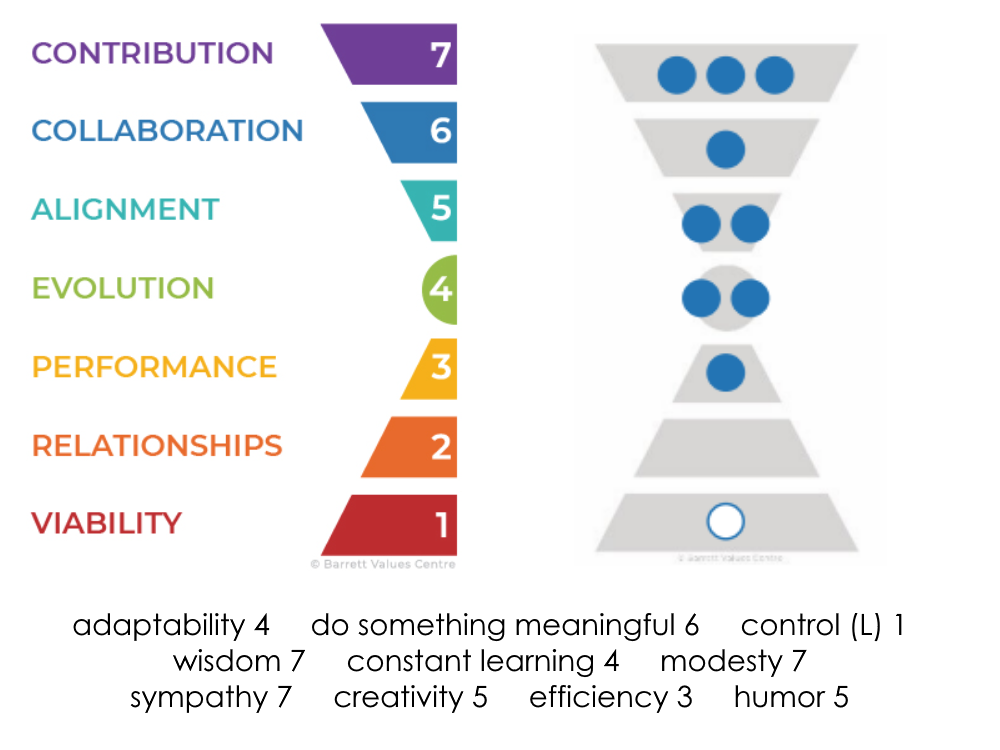Introduction
A successful entrepreneur is independent, responsible, goal-oriented, self-confident, educated, creative, and willing to take risks. If people want to start their own business, they must ensure they have such qualities. Entrepreneurs develop their abilities through education, work training, experience, apprenticeship, and experimentation. A successful commercial entrepreneur must combine the basic skills of leadership and management. Leadership allows managing people, demonstrating the company’s value base, and setting a goal, mission, and vision (Podsakoff and Podsakoff, 2019). Management provides fundamental knowledge in finance, accounting, supply chain, and other critical aspects of the business that an entrepreneur will manage (Podsakoff and Podsakoff, 2019). There are many tests to determine the value orientation from which to build on the choice of business since social responsibility is based on the success of the company, dictated by the involvement, satisfaction, and performance of employees (Khalaf, Hmoud, and Obeidat, 2019; Chatzopoulou, Manolopoulos, and Agapitou, 2021; Ali et al., 2020). For example, the Barret Value Center provides an opportunity to take a free value orientation test for conducting organizational activities.
Discussion
If commercial entrepreneurs, as a rule, evaluate the success of their activities, focusing on profit, revenue, sales volume, or share price, then for a social entrepreneur, “social return” becomes the primary criterion for success. Profit can be taken into account, not as an end in itself, but as a means for further progress towards achieving social goals. This entrepreneur needs the same qualities of a leader and manager, but the differences will only be in the set global goals. Management and knowledge in finance will help a social entrepreneur find a budget for the implementation of the set activities, and leadership will also help rally the team and select the best human resources to achieve the goals (Gupta et al., 2020). However, value qualities are more important here, which should be more focused on socially significant responsibility.
Assessing my skills and qualities, I first turned to the Barret Value Center test, which involves understanding limiting values aimed at survival through self-respect to changing the world and serving it. The model of qualities is an hourglass shape, and each of the defined ten features of a person is located on one of the seven levels of the model (Barret Values Centre, 2022). As a result, I got a picture that corresponds to the skills of a social entrepreneur since most of the values are at the stage of serving the world and changing for the better. The limiting factor is control, a constant desire to keep abreast, which puts relationships and trust in other people at risk (Barret Values Centre, 2022). Regarding my knowledge in the field of entrepreneurship, I am working on the theory of finance, business, and marketing to influence my future company comprehensively. The result of my values test is shown in Figure 1.

Accordingly, the three business ideas proposed and discussed in more detail in the presentation include aspects of social entrepreneurship. The first is to create an organized online platform with a logistics scheme for bookcrossing educational materials between students throughout the country and later across the region. Firstly, this reduces the need to publish books too often created from paper after deforestation. Secondly, these textbooks are often costly for students, and libraries do not always stock study materials adequately (Schnitzler and Heise, 2021). The second idea is to create a centralized travel club to attract assets to the tourism industry, which is currently suffering in Oman (Al Badi and Khan, 2020). The idea includes the creation of an Internet and mobile application for the opportunity to share impressions and recommendations on visiting other regions and countries and organizing travel, as well as corresponding excursion routes, a base of places for various recreation to stimulate domestic tourism.
Conclusion
Finally, the idea of creating a unique and multidisciplinary inclusive workshop in which people with disabilities, together with professional mentors and volunteers, create ceramic, sewing, graphic, and carpentry products, which are then sold, including on international markets.
Reference List
Al Badi, O., and Khan, F. R. (2020) ‘Examining Challenging Factors of Tourism Entrepreneurship in Oman using PLS-SEM’, International Journal of Research in Entrepreneurship & Business Studies, 1(1), pp. 48-64. Web.
Ali, M., et al. (2020) ‘Assessing the mediating role of work engagement between the relationship of corporate social responsibility with job satisfaction and organizational citizenship behavior’, International Review of Management and Marketing, 10(4), p. 1. Web.
Barret Values Centre. (2022). Web.
Chatzopoulou, E. C., Manolopoulos, D., and Agapitou, V. (2021) ‘Corporate Social Responsibility and employee outcomes: Interrelations of external and internal orientations with job satisfaction and organizational commitment’, Journal of Business Ethics, pp. 1-23. Web.
Gupta, P., et al. (2020) ‘Social entrepreneurship research: A review and future research agenda’, Journal of Business Research, 113, pp. 209-229. Web.
Khalaf, R. K. A., Hmoud, H. Y., and Obeidat, B. (2019) ‘Reviewing the mediating role of job satisfaction on the effect of employee engagement on organizational performance’, Journal of Social Sciences (Coes&RJ-Jss), 8(1), pp. 7-23. Web.
Podsakoff, P. M., and Podsakoff, N. P. (2019) ‘Experimental designs in management and leadership research: Strengths, limitations, and recommendations for improving publishability’, The Leadership Quarterly, 30(1), pp. 11-33. Web.
Schnitzler, T. J., and Heise, C. L. (2021) ‘Educational challenges in Jordan and Oman’, International Journal of Teaching and Case Studies, 12(1), pp. 63-74. Web.